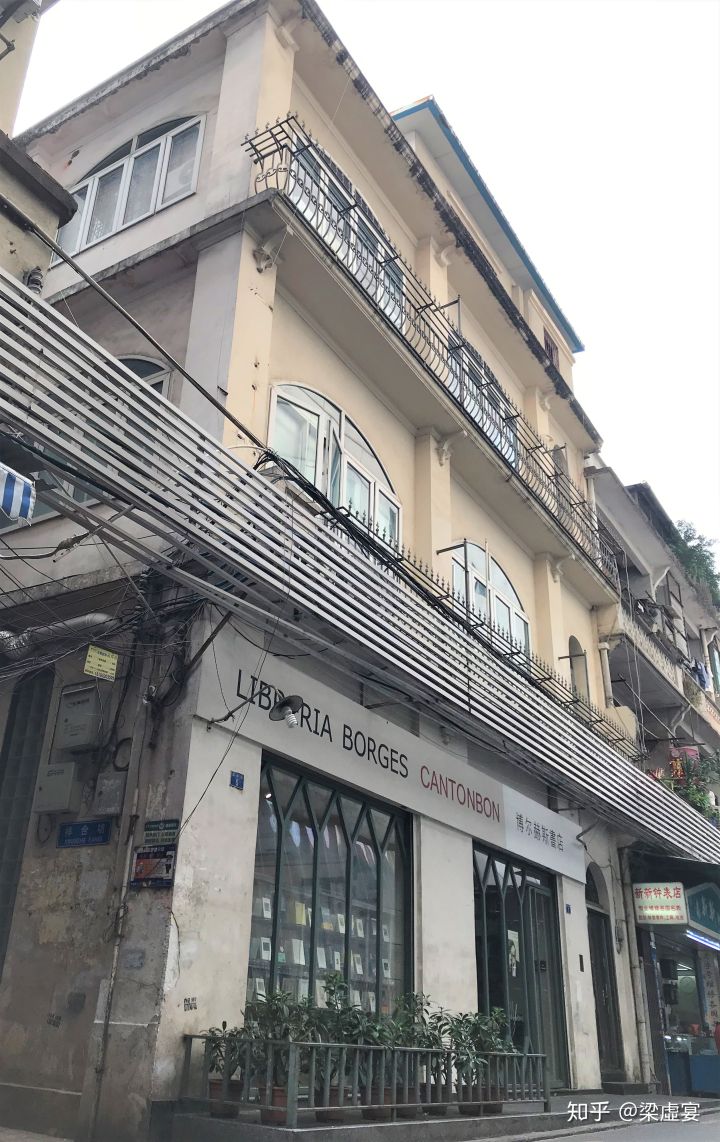Borges Bookstore
The Borges bookstore is a node amongst a network of cultural institutions centered in Guanghzhou. The network is ran by Chen Tong, a local artist, along his team.
The bookstore is located on ground level of a building on Changxing Street, formerly populated with tailor shops which made custom suits and western clothing during years of Republic of China. These days it's a quiet back street, extended from the ever-busy, tourist flooded main road.
On the upper levels nested few other nodes within the same network. Video Bureau, a video art archive; and a working studio that gives drawing courses, ran by Chen Tong's former students.
In the case of closure of Bertelsmann, the shrinking of Nanhai Book Center, we witness operation strategies in publishing industry, and how outdated strategy suffered from economic effects brought by information platform. How independently ran bookstore such as Borges Bookstore retained its vivial form and impact to cultural dynamics to Guangzhou, and its radiation area is truly unique.
From the late 90s to early 2000s, bookstore business was highly profitable. My aunt had made her first bucket of gold, running a small business printing pirate copies of books.
Between 2008 and 2013, a wave of independent bookstores' closure hit across the country. However in 2014, there has been a recovery, due to subsidiary policies issued by provincial goverments. In Guangdong province, several non-state owned bookstores were awarded annual subdiary stipends of 1,000,000 RMB. Several other provincial governments had followed, allocating fiscal budgets accordingly. These are gestures of the government to acknowledge indepedently run insitutions of their cultural contribution to the society.
Chen Tong and his team interprets operation strategy differently than other independent bookstores. It is very common to see bookstores generate revenue from providing coffee and drinks to readers today. For Chen Tong, sales of drinks equates reading to leisure. Borges bookstore does not participate in this kind of business model.
Since 2016, the Borges Bookstore team has been recording live literature podcasts to Lizhi.fm on regular days of the month. The bookstore also maintains a Wechat account, with which to post content, and interact with readers online. Gradually, bookstores are adopting informatics tools that hit the industry in early 2000s.
Another node within the network is a gallery, Bonacon Gallery, opened in 2016. It's normative for the bookstore not to generate revenue, however the gallery must make profits. Aside from Chen Tong's intention to promote local artists and ecosystem to more international industry standards, the gallery is to support the rest of the network, which are not for profit - the Video Bureau, and the Borges Bookstore.
During his speech to receive "Best Small Independent Bookprize", Chen Tong remarked that, their experiences are not worthy to promote, because from a free market point of view, it's running against free market laws. For him, in order to maintaincultural activities, revenues from bookstore business is far less than enough; unless that the bookstore promote trash, meaningless publications, that are enough to disintegrate one's faith.

Decentralized Annotation Tool
My colleague Bo had developed a decentralized annotation tool. Via XMPP chatrooms, users are able to comment to a main body of text.